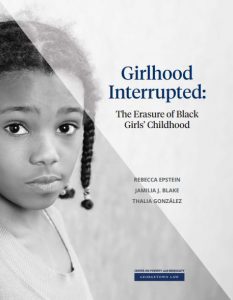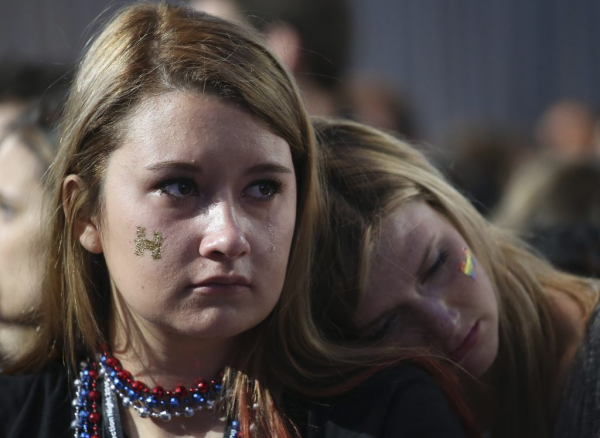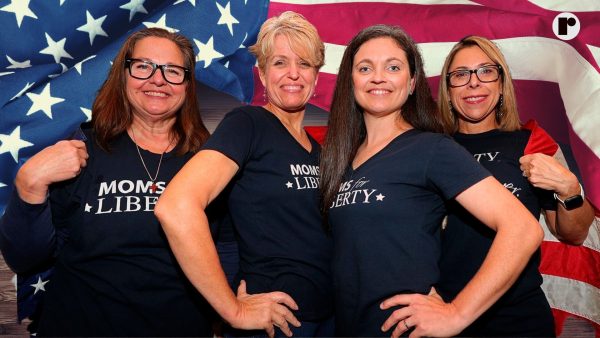The Adultification Bias continues to hurt young girls
On January 29th of 2021, in Rochester, New York, the police were called to a domestic mental health crisis situation, which ended in a 9-year-old Black girl being pepper sprayed and handcuffed by police officers as she cried for her father. She had threatened to harm herself and her mother. During the altercation one of the officer’s said, “You’re acting like a child,” to which the little girl responded, “I am a child.”
Her identity remains anonymous per request of her parents. This 9-year-old Black girl who is an elementary school student was having a mental health crisis and was treated as if she was a criminal by these police officers. The treatment of this young black girl was rooted in adultification — from the way the police officers had spoken to her as if she was not a child to how they treated her physically, pepper spraying her and handcuffing her when she was already in a vulnerable state of mind.
The Adultification bias, which dates back to slavery and still holds prevalence today, has been the direct cause of the theft of young Black girls’ childhoods and the mistreatment of Black women in their adulthood. The phenomenon of the adultification bias has been defined as, “teachers, law enforcement officials and even parent view(ing) black girls as less innocent and more adult-like than their white peers.”
In America there is a double standard when it comes to Black people and white people in general, in which Black people are held to a different standard than white people and that harmful double standard extends to Black children. However, young Black girls have dealt with it to a more extreme and severe level. Through research, surveying, and analysis, experts discovered and have been able to prove that young Black girls are viewed as fundamentally less innocent than their white female peers. This is adultification.
The adultification bias against Black girls affects how authority figures, ranging from teachers, parents, and law enforcement, comfort, discipline, and interact with Black girls. This negative bias that has had Black girls perceived as older than they actually are, is the direct result of authority figures, specifically law enforcement, giving harsher punishments to young Black girls and they will not be comforted or nurtured.
A lot of Black women and girls have stories that connect to the adultification bias whether they know it or not, the adultification bias varies from the way black women and girls hair, bodies, and language is policed to how black women and girls are held to a higher standard compared to their white peers.
A study was conducted by psychology professor Jamilia Blake, Ph.D., she collaborated with the Georgetown Law Center on Poverty and Inequality, “Girlhood Interrupted: The Erasure of Black Girls’ Childhood”, where they had surveyed 325 adults that had been from all different racial and ethnic groups, and different educational levels. The age range of the participants had been between the ages of 25-34.
The participants had been asked to respond to a questionnaire, they were given questions about their perception of Black girls and later they had been given the same questions, however, this time it was about their perception of white girls. The ages of the girls were from: 0-4, 5-9, 10-14, and 15-19.
The researchers found that across all age ranges, the participants viewed Black girls collectively as more adult than white girls. Responses revealed that the participants believed Black girls didn’t need as much protection and nurturing as white girls, and that Black girls knew more about adult topics. The age brackets that had the most significant differences were found between early adolescence, ages 5-9 and 10-14, however, it continued to a lesser degree in the age bracket of 15-19. There had been no significant differences in the 0-4 age group.
In conclusion, through the study Georgetown Law Center on Poverty and Inequality along side psychology professor Jamilia Blake, Ph.D., had conducted Black girls, as young as 5 years old, were perceived by adults to know more about adult topics, including sex, and were more likely to take on adult roles and responsibitlies that would have been expected for their age in comparison to their white female peers.
The perception of Black girls as older and more mature has also played a role in high profile incidents which involve police using excessive force against young Black girls and it has been the leading cause of the overwhelming amount of Black girls who have been and are continuing to be tossed into the school-to-prison pipeline, such as the case I referred to early of the 9-year-old girl who had a mental health crisis and was pepper sprayed by police.
Another incident of this was the 11-year-old Black girl who was tasered with no warning by a police officer for allegedly shoplifting in October of 2018, in Cincinnati, along with a 14-year-old Black girl from Coral Springs, Florida who was pinned to the ground with two police officers on top of her who had struck on her side multiple times in, or in New York, 2019 where four twelve year old girls were racially profiled in their middle school and were illegally stripped searched by a school nurse, who had been instructed by the principal and assistant principal because they suspected the girls were under the influence of illegal drugs due to their “giddy behavior”.
There is Federal Civil Rights data that has shown that Black girls are five to six times more likely to be suspended from school, compared to their white female counterparts. Black girls are typically a small percentage of student populations in schools, however, in 2011-2012 school years, according to the Education Department’s Office of Civil Rights, they still continue to be accounted for more then 40% of girls with multiple out-of-school suspensions. It is also to be noted that Black girls are most likely to be suspended or referred to the juvenile justice system, once again in comparison to their white peers.
These are direct causes of the adultification bias, the presumption that Black girls do not need to be protected and this stereotype, that has been forced onto Black girls, and has mischaracterized them as “aggressive” and “mature”, plays a role in the derailing of Black girls’ childhoods and it has pressured them to fit into this stereotype. The cycle has continued because authorities have not made a change in the way they police Black girls, in comparison to white girls, which is reflected in the percentages of Black girls who are continuously getting suspended from school, and even being referred to the juvenile justice system.
In May of 2019 there was a trending hashtag of twitter called, #LetBlackGirlsBeGirls, where Black women and young girls shared their experiences where they had been stereotyped by adults simply because of the color of their skin.
Twitter user, Naomi Wadler, says “When I was helping lead my school walk out:
Principal: ‘Naomi is being very aggressive’
Mom: “She just asked you to re-instate the state required recess that you took from her and the other kids working on the walkout” #LetBlackGirlsBeGirls share your story @GtownLawPovCntr https://t.co/abSJAmW9kT”
Another twitter user, Sasha M Fountain shares, “#LetBlackGirlsBeGirls When I was 4 I fractured my shoulder at school and the pain was excruciating but the school nurse decided I was fine and sent me back to class. I told her how much it hurt but she ignored me.”
Under this twitter hashtag you will find Black girls coming together to share their stories of how the adultification bias has affected and how authority figures in their life have played into the adultification bias.
Georgetown Law Initiative on Gender Justice & Opportunity has collected stories from Black girls on how the adultification bias has affected them and created a site, where you can donate to their organization, they provide you with resources and ways to take action, they also share empowering articles for Black women and girls on their website as well.
While people are taking action and are actively trying to dismantle the adultification bias and the harmful stereotypes that have come with it, there is still a prevalent institutional failure to address the clear bias that young Black girls from ages 5-14, according to the “Girlhood Interrupted: The Erasure of Black Girls’ Childhood” study, deal with.
Something that people continue to forget and need to instill in their minds more when they are interacting with young Black girls is just that, that they are only just young girls.

I'm a senior and I plan to pursue a career in journalism and I want to study communications in college. I decided to continue to take Journalism because...








